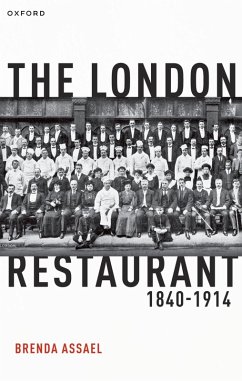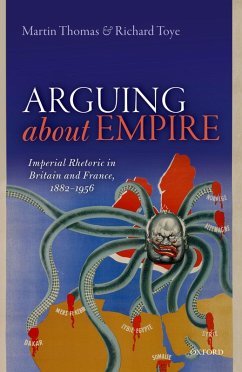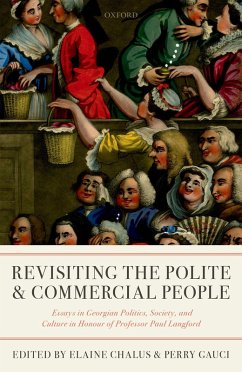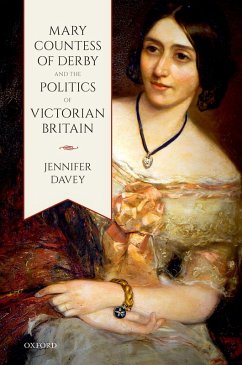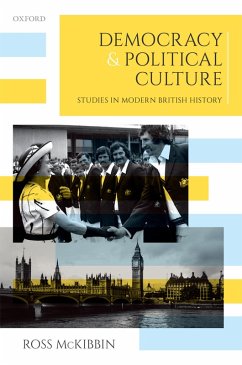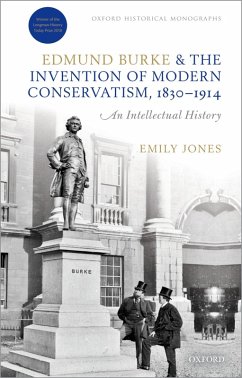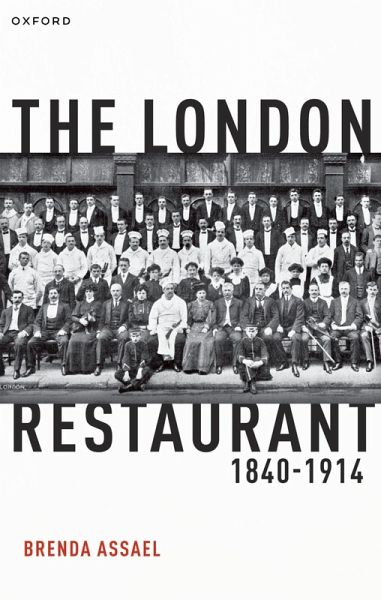
The London Restaurant, 1840-1914 (eBook, ePUB)
Versandkostenfrei!
Sofort per Download lieferbar
13,95 €
inkl. MwSt.
Weitere Ausgaben:

PAYBACK Punkte
7 °P sammeln!
This is the first scholarly treatment of the history of public eating in London in the Victorian and Edwardian eras. The quotidian nature of eating out during the working day or evening should not be allowed to obscure the significance of the restaurant (defined broadly, to encompass not merely the prestigious West End restaurant, but also the modest refreshment room, and even the street cart) as a critical component in the creation of modern metropolitan culture. The story of the London restaurant between the 1840s and the First World War serves as an exemplary site for mapping the expansion ...
This is the first scholarly treatment of the history of public eating in London in the Victorian and Edwardian eras. The quotidian nature of eating out during the working day or evening should not be allowed to obscure the significance of the restaurant (defined broadly, to encompass not merely the prestigious West End restaurant, but also the modest refreshment room, and even the street cart) as a critical component in the creation of modern metropolitan culture. The story of the London restaurant between the 1840s and the First World War serves as an exemplary site for mapping the expansion of commercial leisure, the increasing significance of the service sector, the introduction of technology, the democratization of the public sphere, changing gender roles, and the impact of immigration. The London Restaurant incorporates the notion of 'gastro-cosmopolitanism' to highlight the existence of a diverse culture in London in this period that requires us to think, not merely beyond the nation, but beyond empire. The restaurant also had an important role in contemporary debates about public health and the (sometimes conflicting, but no less often complementary) prerogatives of commerce, moral improvement, and liberal governance. The London Restaurant considers the restaurant as a business and a place of employment, as well as an important site for the emergence of new forms of metropolitan experience and identity. While focused on London, it illustrates the complex ways in which cultural and commercial forces were intertwined in modern Britain, and demonstrates the rewards of writing histories which recognize the interplay between broad, global forces and highly localized spaces.
Dieser Download kann aus rechtlichen Gründen nur mit Rechnungsadresse in A, B, BG, CY, CZ, D, DK, EW, E, FIN, F, GR, HR, H, IRL, I, LT, L, LR, M, NL, PL, P, R, S, SLO, SK ausgeliefert werden.




